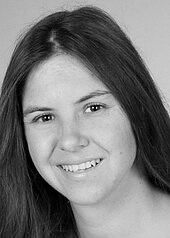Kiessling, Christina
We would like to congratulate her on passing her viva on 17 April 2013.
Dissertation topic:
"Mothers' attitudes with regard to forming relationships with their child with intellectual disabilities."
Contact address at the University of Würzburg:
Wittelsbacherplatz 1
Room 116
D - 97074 Würzburg
Phone +49 931 31-89136
Fax +49 931 888-4837
eMail: sek-gbpaed@mail.uni-wuerzburg.de
First supervisor: Prof Dr Erhard Fischer
Second supervisors:
Class in the Graduate School: "Education and Culture"
Doctorate in the Graduate School since WS 2009/2010
Abstract:
In our society, the mother still bears the main responsibility for the upbringing and the best possible overall development of the child. Discussions about appropriate maternal behaviour and the image of the "good mother" are strongly ideological, not least due to the glorified image of the mother from the Enlightenment and Romanticism. However, current findings from recent infant research and attachment theory also vehemently emphasise the importance of a stable and reliable caregiver for the child to grow up emotionally secure and as stable as possible, with the biological mother in particular appearing to be ideal and suitable for this role.
In this context, the psychoanalyst Winnicott comes to the realisation that a good mother must not only be there for her child at all times, but must also experience personal enrichment and individual satisfaction from her devotion to the child in order to ensure the optimal development of her child.
The development of such unconditional devotion to the child is made considerably more difficult if the child does not correspond to the, often unconsciously manifested, ideal, as is the case in the case of a severe disability. In this context, the French psychoanalyst Maud Mannoni speaks of parental or maternal phantasms about the child's disability. The unbearable disappointment of disabled mothers at the loss of their ideal child turns it into an object of projection in which feelings of failure and inferiority are subsumed.
In addition to a collection of theoretical assumptions on this topic, the present research project will primarily focus on investigating how mothers of mentally disabled children feel towards them, how they accept them with their specialness and how this is expressed in their concrete behaviour towards them, i.e. whether they can ultimately meet the postulated criteria of "good" mothering. Affected mothers are to be interviewed directly in the form of semi-standardised and problem-related interviews, as they can be considered experts with regard to their life situation.






